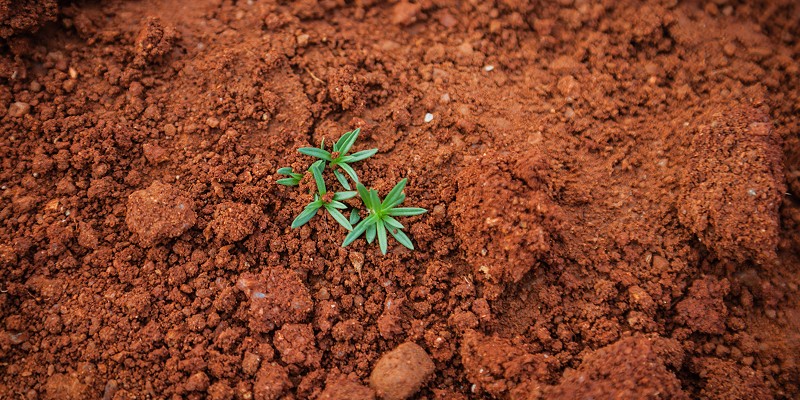What does climate change have to do with soil health?

Carbon is considered to be an essential component of life on earth. Carbon is continuously moving between carbon reservoirs; the atmosphere, oceans, biosphere and geosphere. This process is known as the carbon cycle. Oceans are the largest carbon reservoir followed by soils, which play a key role in the carbon cycle as they have the ability to store three times more carbon than is currently found in the atmosphere. Carbon that is not utilised by plants for growth is distributed through the roots of the plant which is then deposited in the soil.
Why soil health is important?
Soil health refers to a soils capability to function as a living system. Healthy soil is essential because it is the foundation of agriculture; the production of good quality food can only be achieved in healthy soils, making it a vital component for preserving food security and nutrition. Yet it is often a neglected element of the climate system. In fact, human activities such as burning fossil fuels and changing land use have had a significant impact on the carbon cycle, releasing significant quantities of carbon into the atmosphere - which has started to affect the health of the world's soil.
Additionally, poorly managed soil or soil that has been developed through unsustainable agricultural practices can cause the release of Carbon Dioxide (CO2) from the soil and therefore contributes towards climate change. On the other hand, healthy soils which are managed sustainably play a vital role in mitigating against climate change, by acting as stores for excess amounts of carbon and reducing the amount of greenhouse gases in the atmosphere - a process also termed carbon sequestration.
The good news is we can improve the health of our soils through the adoption of soil conservation practices. Below are a few agricultural methods which aim to improve soil health and have been growing in popularity:
Organic Farming
Farming which relies on natural methods to control pests and disease. Organic farming, therefore, does not permit the use of any synthetic pesticides and/or herbicides. The farming technique also incorporates well-designed crop rotations to facilitate healthy soil which results in the production of healthy organic crops.
Conservative Agriculture
This is a sustainable resource-saving, agricultural production system which implements soil management techniques to protect the soil from erosion and degradation. Conservative agriculture also aims to improve diversity while improving overall soil quality.
Agroecology
An alternative ecological approach to farming which centres on food production that makes the best use of nature's resources whilst not causing damage to these resources. Agroecology is considered a mitigation and adaptation strategy of climate change.
Zero tillage
An increasingly popular agricultural technique which allows the structure of the soil to stay intact. Historically ploughing of fields has become the most efficient agricultural technique which allowed sowing to be completed quickly. However, as ploughing typically disturbs the soil by turning up the soils before sowing. Zero tillage farming has become an increasingly popular alternative farming method which does not disturb the soil, therefore decreasing soil erosion and allowing healthy soils to be maintained.
Agroforestry
The combination of agriculture with trees which facilitates healthier soils and high crop yields through the introduction of trees or shrubs around or amongst crops or pastureland.
Overall, these practices have the potential to decrease emissions of greenhouse gases from agricultural practices, enhance carbon sequestration and build resilience to climate change. Take a look at our blog on the 'Future of Urban Agriculture', discussing the importance of food miles, traceability and how urban areas in NI are now growing local.



